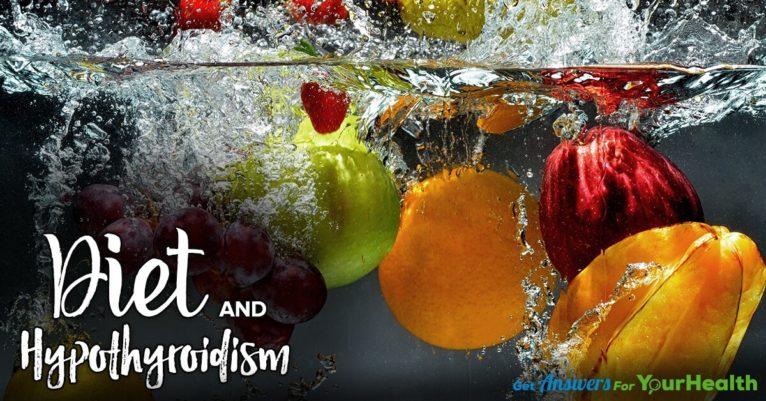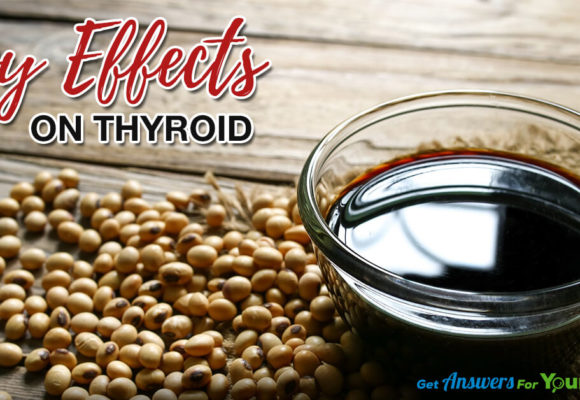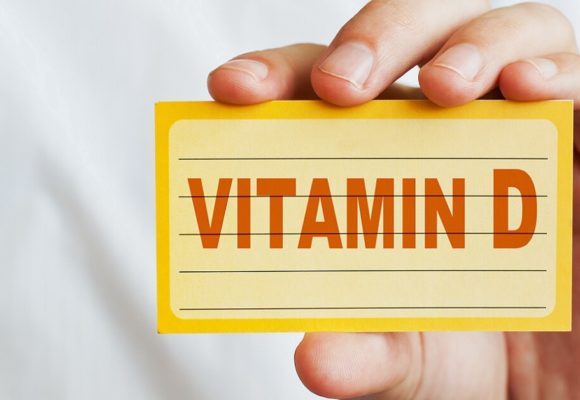1) Grab a FREE copy (Value $14.95) of one of my books Thyroid Symptom Overload
Just pay shipping $7.95 for any US orders. Or, if you want to pay full price plus shipping, order from Amazon :)
2) Take our Thyroid Quiz today and find out what "Thyroid Type" you have
This quiz will help you quickly discover where your symptoms are stemming from.
3) Join Our Thyroid Advocate Membership Site - Natural Thyroid Academy
FREE for a limited time. No credit card required.
4) Work with me and my team privately
Schedule your FREE 15 minute phone consultation and we can find out the best way to help you specifically.
The tiny, little butterfly shaped gland present at the base of your neck called the “thyroid” is your body’s silent and a very important workhorse. Most of the times it is processing so smoothly and silently that we almost forget that it is there. This gland comes to notice only when it starts malfunctioning or going haywire since it helps the body with the basic functions, like regulation of your metabolism, temperature, heartbeat and much more.
Hypothyroidism is an underactive thyroid condition in which the gland does not produce enough thyroid hormones (TSH). It is usually associated with symptoms like decreased metabolic rate, unexplainable weight gain, sluggishness, depression and increased sensitivity to cold.
On the other hand, hyperthyroidism is an overactive thyroid condition which is caused due to the overproduction of thyroid hormones. It leads to sudden weight loss, irregular heartbeat, sweating, diarrhea nervousness and irritability.
What Is Hypothyroidism?
Approximately 12% of Americans will develop hypo or hyperthyroidism at some point in their lives. Up to 40% of this population is suffering from one kind of thyroid condition.
Studies suggest hypothyroidism is the most common thyroid disorders. Women, elderly people and people who have other autoimmune diseases such as type 1 diabetes, rheumatoid arthritis, MS, Cancer, and celiac disease (for example) are more likely at risk to develop hypothyroidism.
Some of the most common factors that contribute in developing an underactive thyroid, aka hypothyroidism, are Hashimoto’s thyroiditis and low iodine diet. People who have gone through extensive radiation therapies or treatments to the face, neck or chest are also at risk of developing hypothyroidism. Other potential causes of hypothyroidism include hormone imbalances, gut inflammation, genetics and pregnancy, high levels of emotional stress and inactivity or lack of exercise. In this article we will focus on how can hypothyroidism be managed with the patient’s diet and what foods should be avoided in hypothyroidism.
Hypothyroidism And Diet.
The risk of developing thyroid disorders is higher for people whose diet is low in nutrient-rich foods, iodine and selenium (crucial trace minerals for functioning of thyroid) in particular.
Selenium and Iodine are very important minerals, which the thyroid gland needs to produce adequate levels of thyroid hormones. They also play other protective roles in the body. For example, a person with severe selenium deficiency is prone to hypothyroidism as the deficiency stops the activity of glutathione, a very powerful antioxidant that controls inflammation and fights oxidative stress.
Being diagnosed with hypothyroidism is not a death sentence. Doctors have come up with various medications and treatments, through which the functioning of the thyroid gland can be controlled. Environmental toxins, autoimmune conditions, stress, genetics, diet are all the factors that can mess with your thyroid. Out of all the other factors, diet is the one which we are in complete control of.
Hypothyroidism is often managed through medications. Generally, a synthetic thyroid hormone pill called “Synthroid” is suggested by conventional medical doctors which has to be taken every day for the rest of the life.
The first step in managing the symptoms of hypothyroidism is the elimination of the most general causes, such as inflammation, over use of medications, nutrient deficiencies and changes in hormones which are a result of stress. This inflammation and immune reactions from food can be avoided or eliminated by following the hypothyroid diet. This diet mainly focuses on foods that help in healing the GI tract, balancing hormones and reducing inflammation. Gregory B. Dodell, an endocrinologist in NY says, along with taking your thyroid medication, you can bolster thyroid function with a well-balanced diet that includes lots of products and proteins, among other healthy foods. However, each person is unique. The DNA Uprint provides custom health solutions to manage thyroid symptoms.
What To Eat If Diagnosed with Hypothyroidism
Below described are the foods which are the best for a hypothyroid patient. They may help in managing the thyroid levels. However, the physiology of every patient differs from one person to another. Therefore, consult your doctor before making your diet plan.
- Wild-Caught Fish:
These wild caught fishes are very rich in the omega-3 fatty acids such as EPA and DHA, which are essential for balancing hormones and normal functioning of thyroid. A hypothyroid patient can reduce inflammation and ensure healthy neurological functioning by balancing the levels of omega-3 to omega-6 fatty acids in the diet.
Some of the best sources of omega 3’s, which can help in increasing neurotransmitter activity and boosting the immune system, are fishes such as wild caught Alaskan salmon, Atlantic mackerel and Pacific sardines.
- Dairy:
Hashimoto’s disease (the most common cause of hypothyroidism) and vitamin D deficiency has been associated with each other (August, 2011, issue of the journal; “thyroid”). A hypothyroid patient should include probiotic rich foods such as kefir (a fermented dairy product), organic goat’s milk yogurt, kimchi and other fermented veggies. These probiotics help in curbing hypothyroidism by balancing micro flora bacteria, thus creating a healthy gut environment by reducing the nutrient deficiencies and autoimmune reactions. Please note that some people are sensitive to dairy and should not consume certain dairy products.
- Seaweed:
Seaweeds, being the best natural sources of iodine, should be included in the hypothyroidism diet as it helps prevent deficiencies that can disturb the function of the thyroid gland.
Doctors recommend to have some of them every week, to keep your thyroid levels balanced. Kelp, nori, Kombu and wakame are some examples of good seaweeds.
According to Mira Ilic, a registered dietician at the Cleveland Clinic, many types of seaweeds are full of iodine, but the amount can vary wildly. A 1-gram portion can contain anywhere from 11% to a whopping 1,989% of your percent daily value, according to the National Institutes of Health. You should also know that one should be careful as too much iodine can also cause harm to the thyroid gland.
- Clean Water:
Consume at least 8 ounces of water every two hours as clean water prevents constipation, low energy and sugar cravings. This can help a hypothyroid person to balance the thyroid levels. Water also helps in preventing fatigue and moodiness by maintaining the body’s hydration and digestive functioning.
- Bone Broth:
L-proline and L-glycine are amino acids (found in beef and chicken stock) that help restore the lining of the digestive tract and improve hypothyroidism. There are many important minerals in bone broth that can help the digestive tract in the elimination of calcium, magnesium, phosphorus.
Bone marrow has also been shown to relieve dietary sensitivity, increase energy and reduce fatigue, increase immunity, and reduce muscle and joint pain. Hence, a hypothyroidism patient should include beef and chicken in his/her hypothyroidism diet.
- Fruits and Vegetables:
Weight gain is the earliest and the main symptom of hypothyroidism. The cornerstones of every weight loss program are usually low calorie, high density foods such as fresh products.
If possible, a hypothyroid patient should include fresh fruits and vegetables in each meal. Some specific foods that are rich in nutrients and antioxidants, also known to reduce the risk of heart diseases are blueberries, cherries, sweet potatoes and green peppers.
- Sprouted Seeds:
Beans, the most inexpensive and versatile food, can help a person with hypothyroidism as it is known as one of the best sources of providing energy. Flax, hemp and chia seeds are some types of seeds that can help with proper hormonal balance and thyroid function. They provide ALA which is also a type of omega-3 fat. Consuming adequate levels of fats stabilizes the blood sugar levels and also support a healthy mood and brain function.
Foods to Avoid in Hypothyroidism.
The thyroid gland is heavily influenced by the nutrients that we consume and certain foods have the ability to interfere in the management of hypothyroid symptoms. They cause ineffectiveness and unmanaged levels of thyroid hormones. Below are the foods that one should avoid in the hypothyroidism diet.
- Gluten:
Hypothyroidism usually comes with insensitivity to gluten or celiac disease, which is an auto immune condition that results in gluten allergy. According to a report by American researchers in 2007, people with celiac disease are more likely to develop hypothyroidism. Gluten, which is commonly found in all wheat, rye and barley products, can be avoided by carefully checking the ingredients of packaged foods, as it can further raise inflammation which may result in nutrient deficiencies and hormonal problems. (Hyperlink of effects of gluten in hypothyroidism)
- Sugar:
Hormonal balance is necessary for the metabolism which can easily be disrupted by sugar. A person with thyroid disorders, such as hypothyroidism, should avoid sugar as much as he/she can as it has the ability to cause hormonal imbalances, fatigue, mood swings, depression and more weight gain.
- Fast Food:
The worst thing one can do to its thyroid disorder is eating fast food. Fast food chains generally do not use iodized salts in their foods. Even if they do, fast food doesn’t has the capability of boosting the iodine levels, which is essential for the thyroid hormones to get back to normal.
- Soy:
Soy, loaded with plant based phytoestrogen is believed to be very likely to increase the risk of developing hypothyroidism, if, overly consumed. For hypothyroidism, it is recommended by the doctors to regulate their soy intake. (Hyperlink of soy and hypothyroidism).
In addition to these diet guidelines, 5 natural measures can also help; Ashwagandha (500 mg), Iodine (150–300 micrograms daily), Selenium (200 micrograms daily), L-tyrosine (500 milligrams twice daily), Fish oil (1,000 milligrams daily) and Vitamin B-Complex (one B-complex capsule daily). Talk to your doctor for proper guidance.
Hypothyroidism can be a very tricky situation to manage Often times, blood work does not correlate with how you feel. However, controlling your diet can make you feel better despite the severity of your symptoms. So, eat smart and feel good.
References.
http://hypothyroidmom.com/the-connection-between-gluten-and-thyroid-disease/
http://www.todaysdietitian.com/newarchives/070112p40.shtml
https://draxe.com/hypothyroidism-diet-natural-treatment/
http://www.health.com/health/gallery/0,,20986201,00.html#worst-fast-food-0
https://www.everydayhealth.com/hs/thyroid-pictures/foods-to-eat/
https://www.everydayhealth.com/hs/thyroid-pictures/foods-to-avoid/
https://www.healthline.com/health/hypothyroidism/diet-plan#1
http://www.mayoclinic.org/diseases-conditions/hypothyroidism/expert-answers/hypothyroidism-diet/faq-20058554








